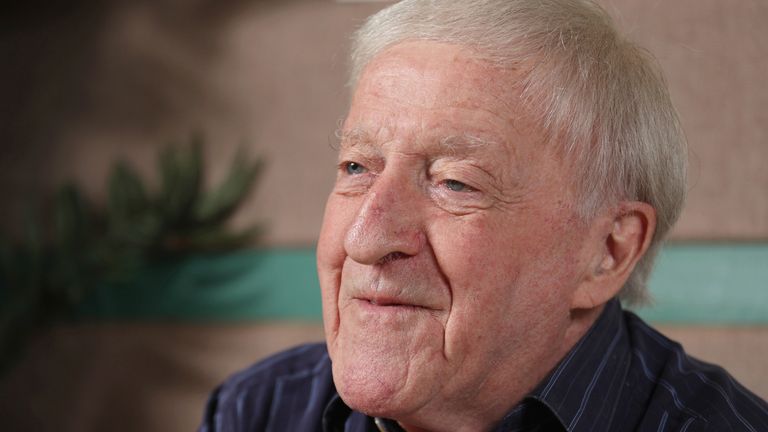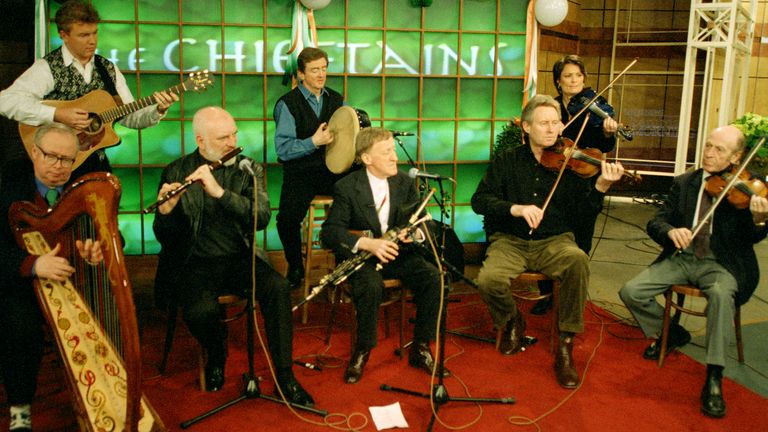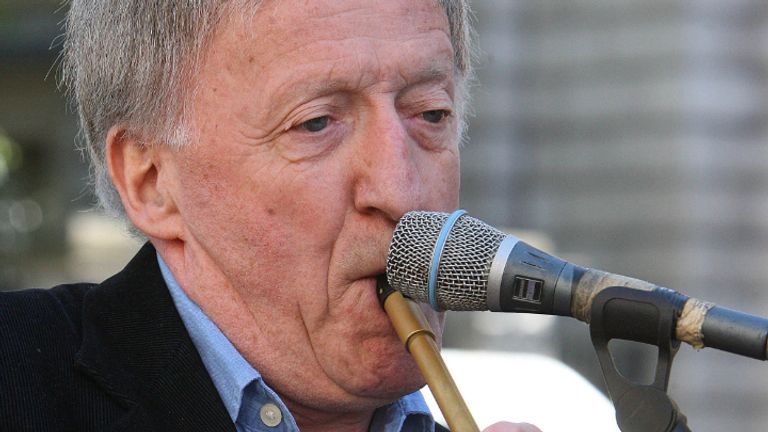Moloney led the band to international recognition, including six Grammy awards since its foundation in 1962.
By Alexa Phillips, news reporter


President Higgins said his work as a producer was a "contribution of great integrity, undertaken to promote the music itself at a time when the commercial benefits of doing so were limited".
"His legacy will remain with us in the music which he created and brought to the world," he added.
Moloney's first instrument was a plastic tin whistle, according to The Chieftains' website

By the age of eight, he was learning to play the uilleann pipes from pipe master Leo Rowsome.
After leaving school, he took a job in a large building firm, where he worked in accounting to support what he regarded as a hobby.
He recorded a number of albums with The Chieftains and decided to leave his accounting job in 1968 to work full time as the managing director of Claddagh Records.
He ran the label for seven years, with contributions to 45 albums in genres like folk, traditional, classical, poetry and spoken word
Claddagh Records said he was "a force of nature, the likes of which this world had never seen before".
Irish Prime Minister Micheál Martin thanked Moloney for his "massive contribution to the life of our nation".
"The term 'legend' is regularly overused, but hard to think of any other way to describe this giant of Irish music and culture," he said.
Ireland's arts and culture minister Catherine Martin said: "We have lost a giant of the national cultural landscape.
"Through the Chieftains, he brought the joy of Irish music to a global audience."
Moloney is survived by his wife Rita and his children Aonghus, Padraig and Aedin
